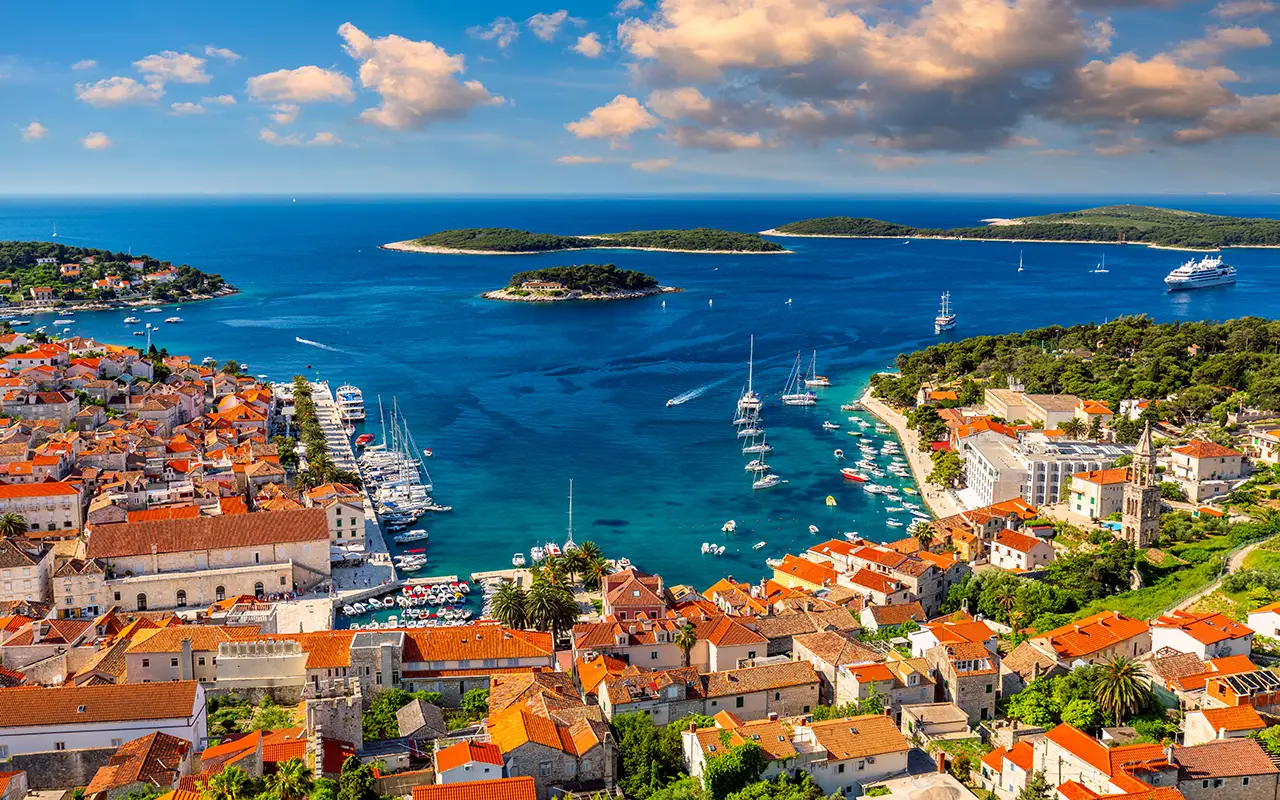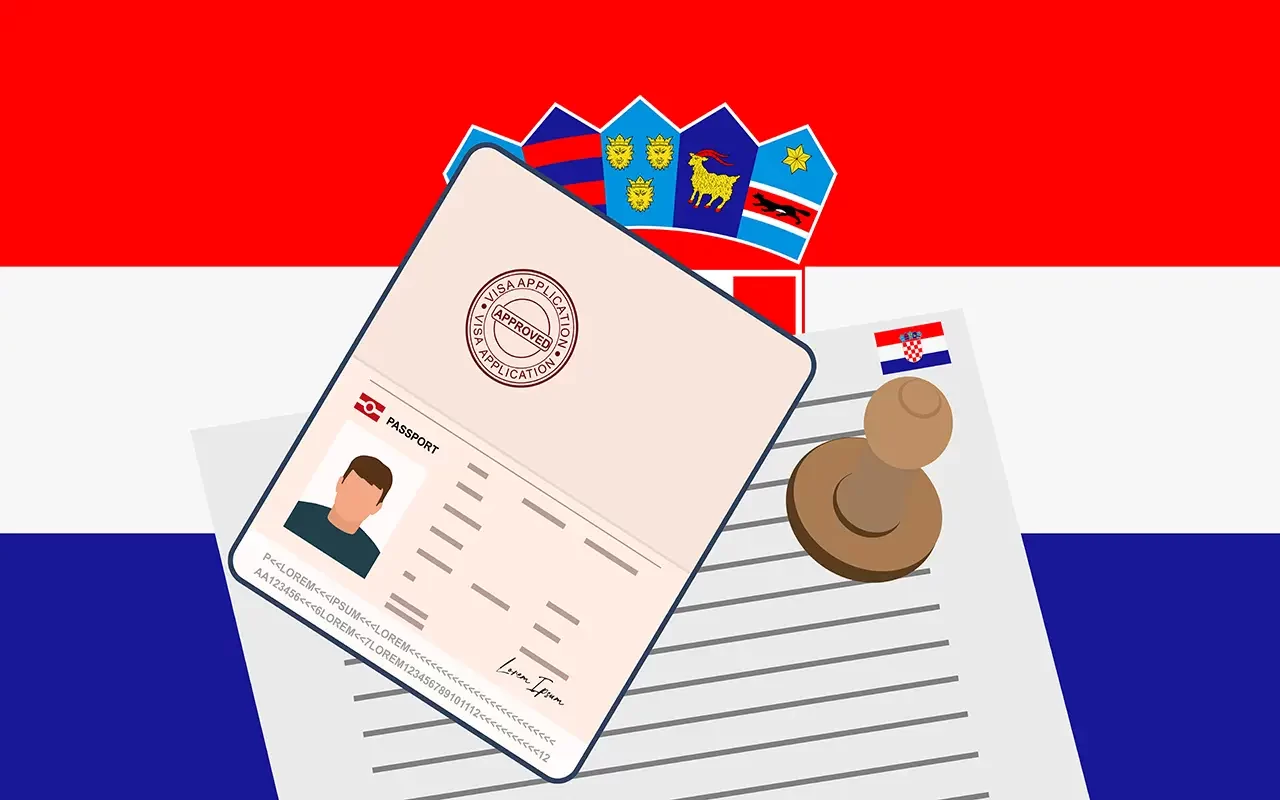
Table of Contents
Overview of Croatia
The 27th (and newest) Schengen state, Croatia’s acceptance into the Schengen area is set to increase visitors to the small Balkan country, which has already in recent years become one of Europe’s fastest growing tourist destinations. More affordable and accessible than neighboring “must see” destinations but equally historic and beautiful, Croatia offers some of the most picturesque coastline in Europe. Its stunning beaches on the Adriatic Sea draw swimmers, sun seekers, and sailors who delight in exploring its plethora of inlets, islands, and coastal towns. Not-to-miss destinations also include Zagreb, Croatia’s Roman-era capital and center for arts and culture, and Dubrovnik—its iconic, walled city (and the dramatic setting for popular international television and film productions). Croatia is a democratic country which takes the euro. Its population of just under 4 million speaks Croatian.Croatia Schengen Visa Eligibility
Schengen visa eligibility for Croatia includes third country nationals from the following states, who are excluded from visa-free entry to Croatia/the Schengen area, and are therefore eligible to apply for a Schengen visa to Croatia.|
1. AFGHANISTAN |
53. LAOS |
|
2. ALGERIA |
54. LEBANON |
|
3. ANGOLA |
55. LESOTHO |
|
4. ARMENIA |
56. LIBERIA |
|
5. AZERBAIJAN |
57. LIBYA |
|
6. BAHRAIN |
58. MADAGASCAR |
|
7. BANGLADESH |
59. MALAWI |
|
8. BELARUS |
60. MALDIVES |
|
9. BELIZE |
61. MALI |
|
10. BENIN |
62. MAURITANIA |
|
11. BHUTAN |
63. MONGOLIA |
|
12. BOLIVIA |
64. MOROCCO |
|
13. BOTSWANA |
65. MOZAMBIQUE |
|
14. BURKINA FASO |
66. NAMIBIA |
|
15. BURMA/MYANMAR |
67. NAURU |
|
16. BURUNDI |
68. NEPAL |
|
17. CAMBODIA |
69. NIGER |
|
18. CAMEROON |
70. NIGERIA |
|
19. CAPE VERDE |
71. NORTH KOREA |
|
20. CENTRAL AFRICAN REPUBLIC |
72. OMAN |
|
21. CHAD |
73. PAKISTAN |
|
22. CHINA |
74. PAPUA NEW GUINEA |
|
23. COMOROS |
75. PHILIPPINES |
|
24. CONGO |
76. QATAR |
|
25. COTE D’IVOIRE |
77. RUSSIA |
|
26. CUBA |
78. RWANDA |
|
27. DEMOCRATIC REPUBLIC OF CONGO |
79. SAO TOME AND PRINCIPE |
|
28. DJIBOUTI |
80. SAUDI ARABIA |
|
29. DOMINICAN REPUBLIC |
81. SENEGAL |
|
30. ECUADOR |
82. SIERRA LEONE |
|
31. EGYPT |
83. SOMALIA |
|
32. EQUATORIAL GUINEA |
84. SOUTH AFRICA |
|
33. ERITREA |
85. SOUTH SUDAN |
|
34. ETHIOPIA |
86. SRI LANKA |
|
35. FIJI |
87. SUDAN |
|
36. GABON |
88. SURINAME |
|
37. GAMBIA |
89. SWAZILAND |
|
38. GHANA |
90. SYRIA |
|
39. GUINEA |
91. TAJIKISTAN |
|
40. GUINEA-BISSAU |
92. TANZANIA |
|
41. GUYANA |
93. THAILAND |
|
42. HAITI |
94. TOGO |
|
43. INDIA |
95. TUNISIA |
|
44. INDONESIA |
96. TURKEY |
|
45. IRAN |
97. TURKMENISTAN |
|
46. IRAQ |
98. UGANDA |
|
47. JAMAICA |
99. UZBEKISTAN |
|
48. JORDAN |
100.VIETNAM |
|
49. KAZAKHSTAN |
101.YEMEN |
|
50. KENYA |
102.ZAMBIA |
|
51. KUWAIT |
103.ZIMBABWE |
|
52. KYRGYZSTAN |
Required Documents for Croatia Visa
Before you submit the below basic required documents, which are required for your Croatia Schengen visa, find out if your application destination requires translations of them into either Croatian or English (if they are presented in another language).- Valid passport
- Passport-sized photos
- Application form
- Fingerprints (biometric data)
- Travel medical insurance
- Visa fee
- Materials related to your trip:
- Reason for visit
- Where you will stay (accommodation)
- How you will fund your trip (finances)
- Proof that you will leave Croatia before your visa becomes invalid/expires. This is often in the form of a paid roundtrip plane ticket (proof of return).
Croatia Schengen Visa Fee
The standard Croatia Schengen visa fee for an adult is 80 Euros. Certain types of applicants (most students, children under 6) are exempt from all visa fees. To get a Schengen visa for Croatia, you will likely have to submit a service payment with your visa application-this is a separate cost from the visa fee. Please note that all fees are non-refundable in the case of visa rejection.
How to Apply for Croatia Visa: Steps
- Step 1: Determine your Purpose for traveling to Croatia, which will determine the Type of visa you should apply for.
- Step 2: Determine how many Entries to Croatia/the Schengen area you need.
- Step 3: Gather your Required Documents.
- Step 4: Schedule a Schengen Visa appointment (if applicable).
- All first-time applicants for the Croatia Schengen visa need to attend a visa appointment at their local Croatian Embassy/Consulate (or visa center) in order to drop off their application, and most applicants will also need to schedule that appointment in advance.
- Step 5: Fill out your application
- Access Croatia’s online visa portal here.
- Applicants for the Croatia Schengen visa may alternatively be directed to the universal Schengen visa form, available for download here.
- You should print out and sign whichever application you submit (even if you apply through an online version). Note also that both applications must be written with Latin text and submitted at the Croatian Embassy/Consulate or visa center you are applying through.
- Step 6: Pay the application fee.
- Step 7: Submit your Croatia Schengen visa application (at least 15 days prior to travelling, not before 6 months).
- Different Croatian Embassies/Consulates/processing centers have different procedures for submitting applications. In almost all cases, applications must be submitted in person to the location you are applying through. When you submit your application, you will likely also be asked to submit biometric data (fingerprints). Children younger than 12 years are exempt from having their fingerprints collected (however, they will need to fulfil the photo requirement). If you have previously submitted fingerprints (within the last 59 months), you likely will not need to resubmit them.
- Please note, after submitting your application, you may be asked to return at a later date for a personal interview to provide further information/materials related to your trip.
When to apply Croatia Schengen Visa
Submit your application at least 15 days prior to the day you intend to travel, and no earlier than 6 months before you leave.
Where to apply for Croatia Schengen Visa
Applications for Schengen visas to Croatia should be submitted in person at either a Croatia Consulate/Embassy or a visa application center that has a relationship with Croatia.
Applicants are typically required to apply through the Croatian Embassy/Consulate in their country of citizenship or country of residence (i.e. where they live currently if different from country of citizenship).
If Croatia does not have a consular presence where you live, you may lodge your application through application destination of the Schengen state representing Croatia’s consular interests.
Processing Time for Croatia Schengen Visa
The Croatia Schengen visa processing time is typically 15 days, although it may take up to 45 days in certain cases.
If your Croatia Visa was approved
Collect your visa and make sure the information it contains is both valid and complete.
If your Croatia Visa was denied
If you receive a Schengen visa rejection for Croatia, you have the right to appeal, provided you do so within the official timeframe (15 days post-receipt of visa rejection) and through the legitimate channel (the Croatian Embassy/Consulate through which you applied for your original visa).
The rejection letter for your Croatia Schengen visa will contain information on how to appeal the decision. Typically, all appeal processes require the applicant to send a letter (by post) to the Croatian Division for Visas of the Ministry of Foreign and European Affairs detailing how in their opinion the decision is unwarranted. Appeals originally written in a language other than Croatian will need to be submitted alongside a notarized translation into Croatian (occasionally, English language appeals/translations are accepted in lieu of Croatian-language appeals).
The launching of the appeal process is typically predicated on payment of an appeal fee (320 KN—around 50 USD) which is, like the original Schengen visa application fee, nonrefundable in almost all cases whatsoever.
Finally, once you obtain your Schengen Visa for Croatia, please note the following:
Your visa may be revoked if you do not notify your respective Croatian Embassy/Consulate/visa application center of any changes to your trip itinerary that occur after you have submitted your application.
Being approved for a Croatia visa does not guarantee you entry to either Croatia or the general Schengen area-you can still be refused entry to Croatia specifically and the Schengen area generally upon arrival.
Alternatively, you may have to show additional documents regarding your finances or accommodation in order to enter Croatia/the Schengen area.


